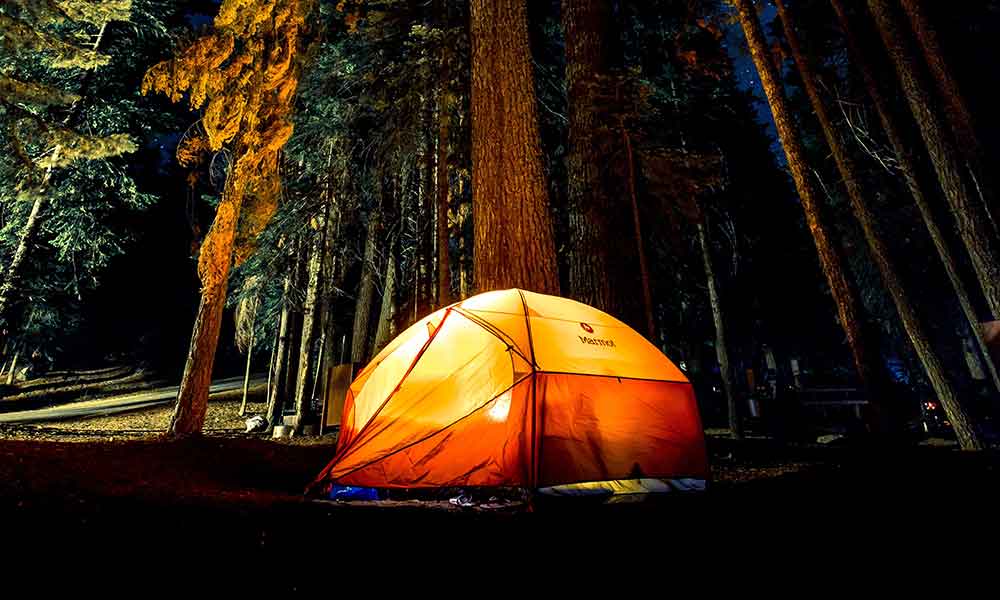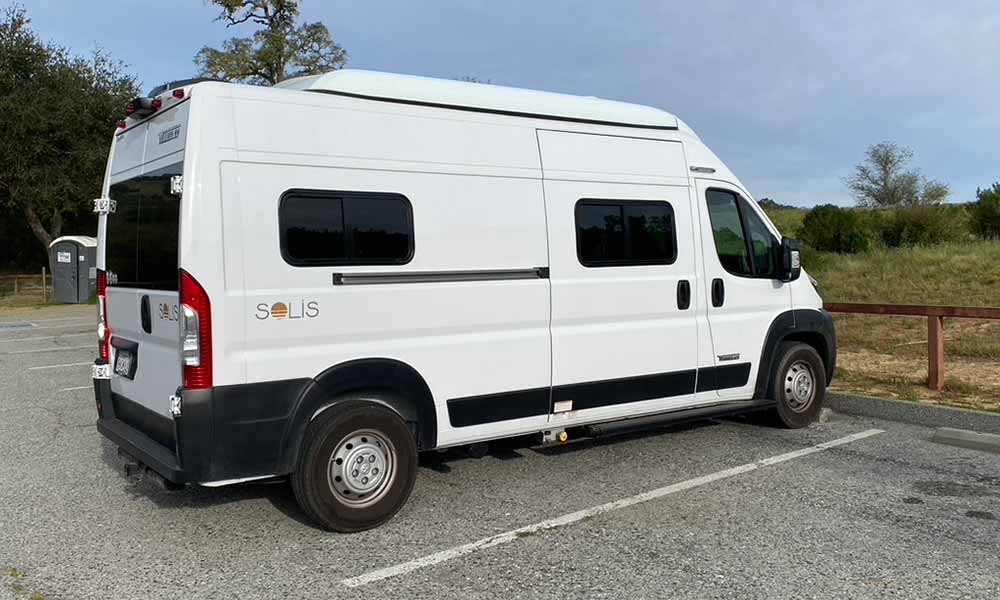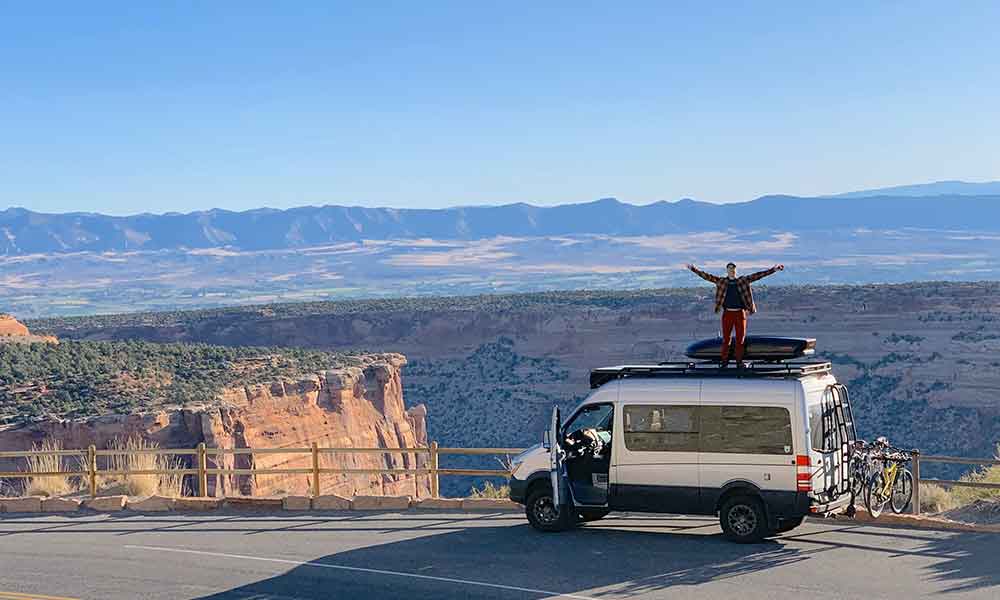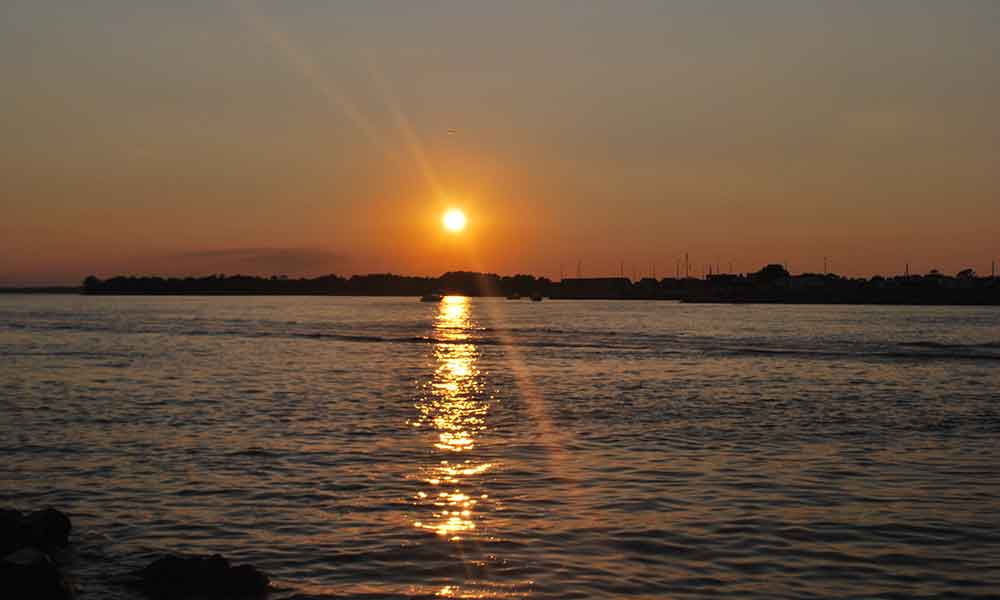Camping brings up different images to different folks. For some, it’s a massive campground full of RVs and incredible amenities, such as swimming pools, playgrounds, flushing toilets, and hot showers. For others, camping means sleeping in your hammock under the stars without another camping party within sight. The latter is an example of primitive camping.
The difference between camping and primitive camping is cost and amenities. Camping is at established sites for a fee which goes towards extras such as potable water and toilets. Primitive camping, also called dispersed camping, is less formal, often free, and has no amenities.
Camping is a popular activity; nearly 50 million Americans do it each year. However, as the number of people rises, traditional campground spaces are becoming harder to come by. With the crowds comes growing disillusionment for some, as they yearn to enjoy the outdoors in quieter locations. Thus, the growing popularity of primitive camping.
What Is Primitive Camping?
Primitive camping is foregoing the traditional campsites and delving deeper into the backcountry. This type of camping has its pros and cons.
Primitive camping is typically in areas with little to no signal, no assistance nearby, no running water, no toilets, or a campfire ring. This means you need to be self-reliant and pack everything you need. Some primitive camping areas can be reached with a 4×4, and others require you to haul it all in by foot.
On the other hand, it is usually private and peaceful unless a wild animal visits. Also, unlike traditional camping, you typically don’t need a reservation or pay a fee. If there is a fee or permit, the cost is generally low.
Primitive Camping Vs. Rustic Camping
Rustic camping is in between regular camping and primitive camping. Rustic campsites are typically cheaper than traditional camping and are less crowded but have fewer amenities.
A typical rustic campsite will provide a communal pit toilet, a communal potable water faucet, and perhaps a firepit. But there probably won’t be any showers, toilet paper, electricity, or any other type of hookup. The water quality from the faucet might also vary and sometimes run dry.
Rustic camping usually is on a first-come-first-serve basis, and you can often drive to them in a regular car or at least reach them with minimal hiking. Some rustic campsites also allow camper vans or smaller RVs.
There is often a communal drop-off for trash at rustic campsites, such as a large dumpster near the entrance. Whereas in primitive camping, you haul everything out, sometimes even your used toilet paper.
Where Is Primitive Camping Legal?
Primitive camping is often legal in National Forest and BLM land. Some National Parks also allow primitive camping but often have more rules, regulations, and permits. While National Forest land is generally open for primitive camping, there are closures due to forest fires and other events. Also, there is usually a specified distance from paid campsites required.
Unlike regular camping, where it is easy to find a campsite, primitive camping requires more research. An excellent site to help you out is The Dyrt.
Also, be sure to research an area’s rules. For example, Vermont’s state forests allow primitive camping in certain sections, but only up to three consecutive nights per area.
Going To The Toilet When Primitive Camping?
There are no toilets when primitive camping, unlike regular or rustic camping. However, how you answer the call of nature depends on where you are staying.
In some areas, you dig a hole, fill it with your human waste and one-ply biodegradable toilet paper, then cover it up.
Other areas allow you to fill a hole with your human waste then cover it, but you must pack out any used toilet paper.
Lastly, some areas require you to pack out all human waste, except urine.
No area wants you going near a waterway. Most rules state you need to be 200 feet from a water source, trail, or camping area to relieve yourself of nature’s burden.
Can You Have A Campfire When Primitive Camping?
Each area will have its own rules regarding campfires while primitive camping. Some require a permit to have a campfire. Others don’t allow it due to the high forest fire risk. There are some that allow it, but you need to make your own fire ring and only use materials found in the area, but without chopping any trees down. Again, it’s all about research before staying.
Thus, you need to pack a camp stove, just in case you are prevented from being able to light a fire.
Where Do You Get Water When Primitive Camping?
Unlike regular camping, primitive camping requires you to haul in your own water. You will need enough to drink, cook, brush your teeth, and clean. There are sometimes places with a natural water source, but you’ll have to bring a filter and purification system. Knowledge of finding water in difficult areas is also wise since accidents can occur.
For general hygiene, wet wipes can be excellent. Just keep in mind you’ll be hauling out any used wipes, as these do not biodegrade, no matter what the packaging claims. Hand sanitizer can also help keep hands clean for cooking without wasting precious water.
Pack Food When Primitive Camping
You should haul in plenty of food when primitive camping, regardless if you are hoping to catch your dinner by fishing or hunting (if legal). Sometimes the fish just won’t bite, and you’ll need a backup.
Also, be aware that paws, big and small, will also want your food. Therefore, hanging a bear bag is an excellent idea, regardless of whether you are in bear country. This will help keep other critters, such as raccoons and coyotes away from your tent and out of your food supply while you sleep.
If you are in bear country, remember to put anything with a strong odor into the bear bag along with the food. This includes clothes you cooked in, toothpaste, deodorant, sunscreen, and lotions.
Some backcountry areas will provide bear boxes. Just remember to make sure anything you put in them can survive being kicked around. Bears have a tendency to play soccer with the boxes in the off chance one will pop open. Also, don’t pitch your tent near the box or the bag.
Conclusion
Regular camping has its comforts and advantages. But for those tired of the crowds and trying to secure bookings, primitive camping can be a breath of fresh air. There is rustic camping for those wanting something in between, which gives you some elbow room while still providing a bit more security.







